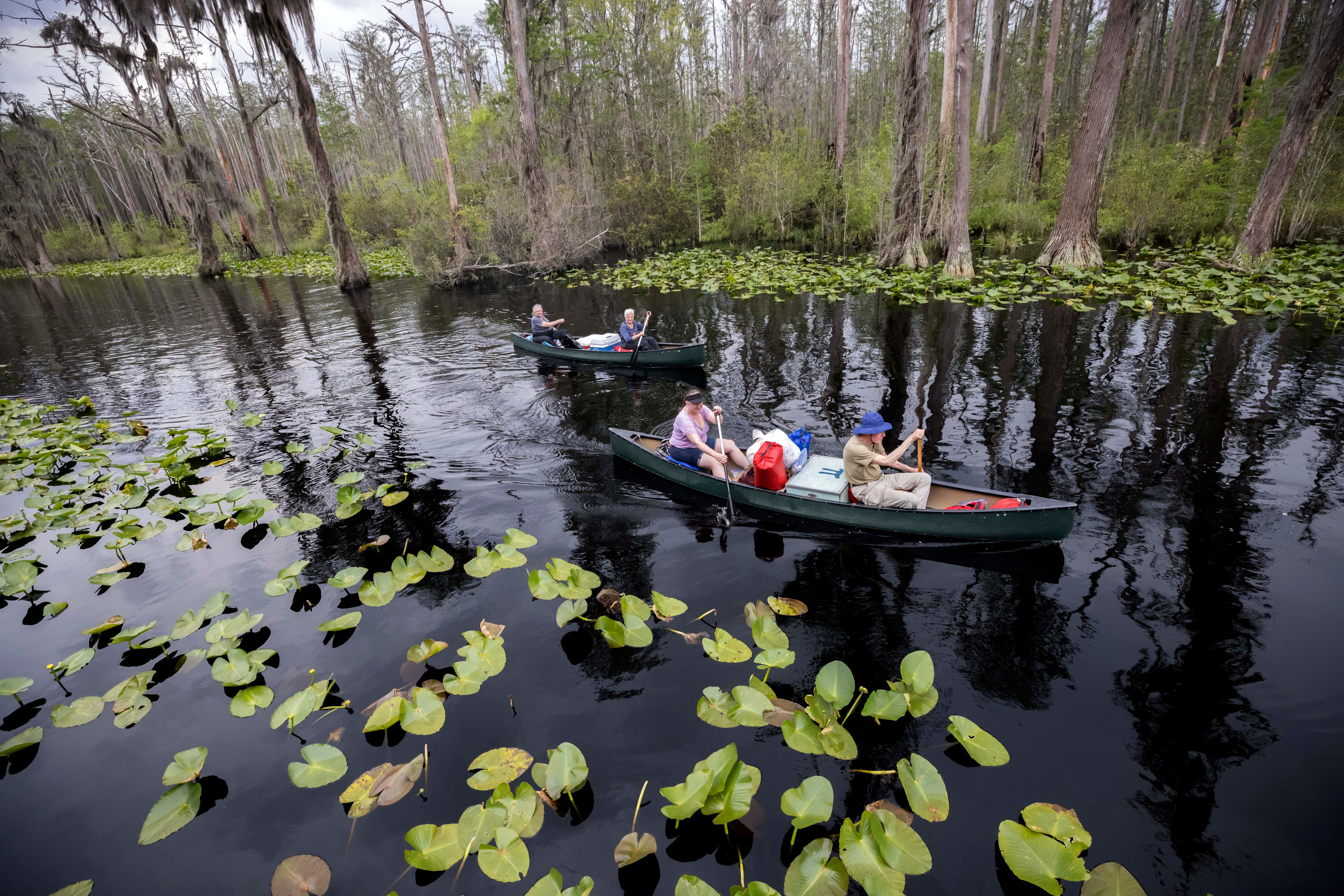U.S. agency sued over hands-off decision on Okefenokee mine
A U.S. government agency is being sued over its decision to allow a proposed mine outside the vast Okefenokee National Wildlife Refuge to move forward without federal permits

Your support helps us to tell the story
From reproductive rights to climate change to Big Tech, The Independent is on the ground when the story is developing. Whether it's investigating the financials of Elon Musk's pro-Trump PAC or producing our latest documentary, 'The A Word', which shines a light on the American women fighting for reproductive rights, we know how important it is to parse out the facts from the messaging.
At such a critical moment in US history, we need reporters on the ground. Your donation allows us to keep sending journalists to speak to both sides of the story.
The Independent is trusted by Americans across the entire political spectrum. And unlike many other quality news outlets, we choose not to lock Americans out of our reporting and analysis with paywalls. We believe quality journalism should be available to everyone, paid for by those who can afford it.
Your support makes all the difference.Conservation groups filed suit Tuesday against a U.S. government agency challenging its decision to allow a mining project to move forward without federal permits near the edge of the Okefenokee Swamp's vast wildlife refuge.
The lawsuit filed in U.S. District Court accuses the Army Corps of Engineers of contradicting its own policies and violating federal law when the agency agreed in August to relinquish regulatory jurisdiction over the proposed mine near the Georgia-Florida line.
It's the latest move by environmentalists seeking to stop Twin Pines Minerals from mining titanium dioxide near the eastern edge of the Okefenokee National Wildlife Refuge. It's the largest refuge east of the Mississippi River, covering 630 square miles (1,630 square kilometers). Government scientists have warned that mining near the swamp's bowl-like rim could damage its ability to hold water.
“The Corps has stripped the proposed mine site of not only protections provided by a Clean Water Act permit, but also a host of other protections guaranteed by federal law,” attorneys for the Southern Environmental Law Center said in the lawsuit, filed on behalf of four conservation groups.
The Army Corps said it doesn't comment on pending litigation.
Shifting answers by the Army Corps over whether the federal government has regulatory authority over the Georgia project have vexed Alabama-based Twin Pines and opponents of the planned mine for more than two years.
That's because the rules have changed twice since the company began applying for mining permits in 2019. President Donald Trump's administration narrowed the types of waterways qualifying for protection under the Clean Water Act, prompting the Army Corps to declare in 2020 that it no longer had jurisdiction over wetlands on the Twin Pines project site.
The Army Corps then briefly reasserted authority in June after Trump's regulatory rollbacks were scrapped by federal courts and President Joe Biden's administration sought to restore federal oversight of Twin Pines' proposed mine.
The company responded by suing the government. In August, the Army Corps agreed to a legal settlement that again let the planned mine move ahead without its interference.
That's left Georgia state regulators with sole permitting authority over the project. The state Environmental Protection Division is still reviewing Twin Pines' permit applications.
The conservation groups' lawsuit says the Army Corps' hands-off agreement with Twin Pines contradicts the agency's own internal guidance that says landowners can no longer rely on jurisdictional waivers made under the invalidated Trump-era rules. It also says the decision violates the Administrative Procedures Act.
The groups are asking a court to vacate the Army Corps' agreement with Twin Pines. The lawsuit was filed on behalf of the National Wildlife Refuge Association, the National Parks Conservation Association, Defenders of Wildlife and the Center for Biological Diversity.
The sprawling Okefenokee refuge is home to alligators, bald eagles and other protected species. The swamp’s wildlife, cypress forests and flooded prairies draw roughly 600,000 visitors each year, according to the U.S. Fish and Wildlife Service, which manages the refuge.
Twin Pines President Steve Ingle has insisted his company can mine the site that includes more than 556 acres (225 hectares) of wetlands without harming the swamp.
Government scientists have been skeptical. In February 2019, the Fish and Wildlife Service wrote that the proposed mine could pose “substantial risks” to the swamp, including its ability to hold water. Some impacts, it said, “may not be able to be reversed, repaired, or mitigated for.”